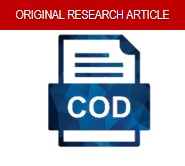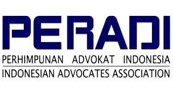The Suspension of the Advocate Oath and Its Implications for the Criminalization of the Legal Profession
DOI:
https://doi.org/10.46924/jihk.v7i1.263Keywords:
Criminal Law, Advocates, Principle of Legality, Suspension of OathAbstract
The suspension of advocates’ oaths by the High Court raises fundamental legal issues concerning the professional legitimacy of advocates and the public’s right to legal aid. This study examines the legal basis for such suspension within the framework of Law No. 18 of 2003 on Advocates, evaluates the status of advocates following suspension, analyzes potential criminal implications, and explores broader policy consequences for human rights, particularly access to justice. Employing a normative juridical method, the research draws upon approaches from legal dogmatics, legal theory, and legal philosophy, supported by analysis of statutory law, legal scholarship, and relevant judicial decisions. The findings reveal that the suspension of advocates’ oaths lacks explicit legal grounding, constitutes an ultra vires act, and contravenes the principle of legality. Advocates whose oaths are suspended remain professionally legitimate and cannot be subject to prosecution except through mechanisms established by professional organizations or a binding judicial ruling. In conclusion, the unilateral suspension of oaths generates legal uncertainty, undermines public access to legal aid, and underscores the necessity of ensuring legal certainty and safeguarding both advocates’ rights and the public’s right to justice.
Downloads
References
Journals
Anggoro, Firna Novi. “Pengujian Unsur Penyalahgunaan Wewenang Terhadap Keputusan Dan/Atau Tindakan Pejabat Pemerintahan Oleh PTUN.” Fiat Justisia: Jurnal Ilmu Hukum 10, no. 4 (2017): 647–270. https://doi.org/10.25041/fiatjustisia.v10no4.803.
Arif, Kamal. “Perlindungan Hukum Terhadap Hak Imunitas Advokat Dalam Penegakan Hukum Di Indonesia.” Iqtisad: Reconstruction of Justice and Welfare for Indonesia 5, no. 1 (2018): 23–42. https://doi.org/10.31942/iq.v5i1.2206.
Baihaqi, Raihan, Hasrat Dihati, and Fauziah Lubis. “Peran Dan Fungsi Advokat Sebagai Penegak Hukum.” Journal on Education 5, no. 2 (2023): 3958–69. https://jonedu.org/index.php/joe/article/view/1084.
Dewanti, Tyur Reggina, and Kayus Kayowuan Lewoleba. “Analisis Pelanggaran Kode Etik Advokat Terhadap Penanganan Perkara Klien Dalam Kasus Advokat Biy Palembang.” Media Hukum Indonesia 3, no. 3 (2025): 381–89. https://ojs.daarulhuda.or.id/index.php/MHI/article/view/1642.
Fahmiron, Fahmiron. “Independensi Dan Akuntabilitas Hakim Dalam Penegakan Hukum Sebagai Wujud Independensi Dan Akuntabilitas Kekuasaan Kehakiman.” Jurnal Litigasi 17, no. 2 (2016): 3467–3516. https://doi.org/10.23969/litigasi.v17i2.158.
Fazriah, Dina, Imas Yuliana Nurasri, Mezy Alyka Setiawan, Nabilah Azhari Putri Rahmatullah, and Nike Fitriani. “Hubungan Kebebasan Dan Tanggung Jawab Dalam Profesi Advokat.” Das Sollen: Jurnal Kajian Kontemporer Hukum Dan Masyarakat 1, no. 1 (2023): 1–25. https://journal.forikami.com/index.php/dassollen/article/view/150.
Hafidzi, Anwar. “Eksistensi Advokat Sebagai Profesi Terhormat (Officium Nobile) Dalam Sistem Negara Hukum Di Indonesia.” Khazanah: Jurnal Studi Islam Dan Humaniora 13, no. 1 (2015): 1–25. https://doi.org/10.18592/khazanah.v13i1.517.
Nardo, Leo. “Pertanggungjawaban Kode Etik Advokat Terhadap Pelanggaran Yang Dilakukan Oleh Advokat.” Jurnal Ilmiah Publika 11, no. 1 (2023): 143–50. https://doi.org/10.33603/publika.v11i1.8214.
Nurhidayah, Andi. “Hak Imunitas Advokat Dalam Menjalankan Profesi Hukum.” Constitutum: Jurnal Ilmiah Hukum, 2, no. 1 (2023): 77–89. https://doi.org/10.37721/constitutum.v2i1.1337.
Radbruch, Gustav. “Five Minutes of Legal Philosophy (1945).” Oxford Journal of Legal Studies 26, no. 1 (2006): 13–15. https://doi.org/10.1093/ojls/gqi042.
Raharjo, Agus, and Sunarnyo Sunarnyo. “Penilaian Profesionalisme Advokat Dalam Penegakan Hukum Melalui Pengukuran Indikator Kinerja Etisnya.” Jurnal Media Hukum 21, no. 2 (2014): 182–96. https://doi.org/10.18196/jmh.v21i2.1186.
Rifa’i, Sumarsih Edi. “Kewenangan Dewan Etik Profesi Advokat Dalam Pembaharuan Penegakan Hukum.” Muhammadiyah Law Review 7, no. 1 (2023): 52–61. http://dx.doi.org/10.24127/lr.v7i1.2507.
Samosir, Samuel Saut Martua. “Organisasi Advokat Dan Urgensi Peran Pemerintah Dalam Profesi Advokat.” Jurnal Konstitusi 14, no. 3 (2017): 512–30. https://doi.org/10.31078/jk1433.
Wijaya, Cinthia, John Calvin, and Mutiara Girindra Pratiwi. “Usaha Pemerintah Melindungi Hak Imunitas Advokat Dalam Melakukan Pekerjaan.” Jurnal Muara Ilmu Sosial, Humaniora, Dan Seni 2, no. 2 (2018): 691–99. https://doi.org/10.24912/jmishumsen.v2i2.2494.
Books
Purwoleksono, Didik Endro. Perkembangan 3 Pilar Hukum Pidana Di Indonesia. Malang: Literasi Nusantara Abadi Grup, 2023. https://penerbitlitnus.co.id/portfolio/perkembangan-3-pilar-hukum-pidana-di-indonesia/.
Downloads
Published
Issue
Section
License
Copyright (c) 2025 Lutfiadi Lutfiadi, Win Yuli Wardani, Febrina Heryanti, Mohammad Mohammad, Insana Meliya Dwi Citra Aprilia Sari

This work is licensed under a Creative Commons Attribution 4.0 International License.
Authors who publish with this journal agree to the following terms:
- Copyright on any article is retained by the author(s).
- The author grants the journal, the right of first publication with the work simultaneously licensed under a Creative Commons Attribution License that allows others to share the work with an acknowledgment of the work’s authorship and initial publication in this journal.
- Authors are able to enter into separate, additional contractual arrangements for the non-exclusive distribution of the journal’s published version of the work (e.g., post it to an institutional repository or publish it in a book), with an acknowledgment of its initial publication in this journal.
- Authors are permitted and encouraged to post their work online (e.g., in institutional repositories or on their website) prior to and during the submission process, as it can lead to productive exchanges, as well as earlier and greater citation of published work.
- The article and any associated published material is distributed under the Creative Commons Attribution 4.0 International License



 Sinta ID:
Sinta ID: 


















